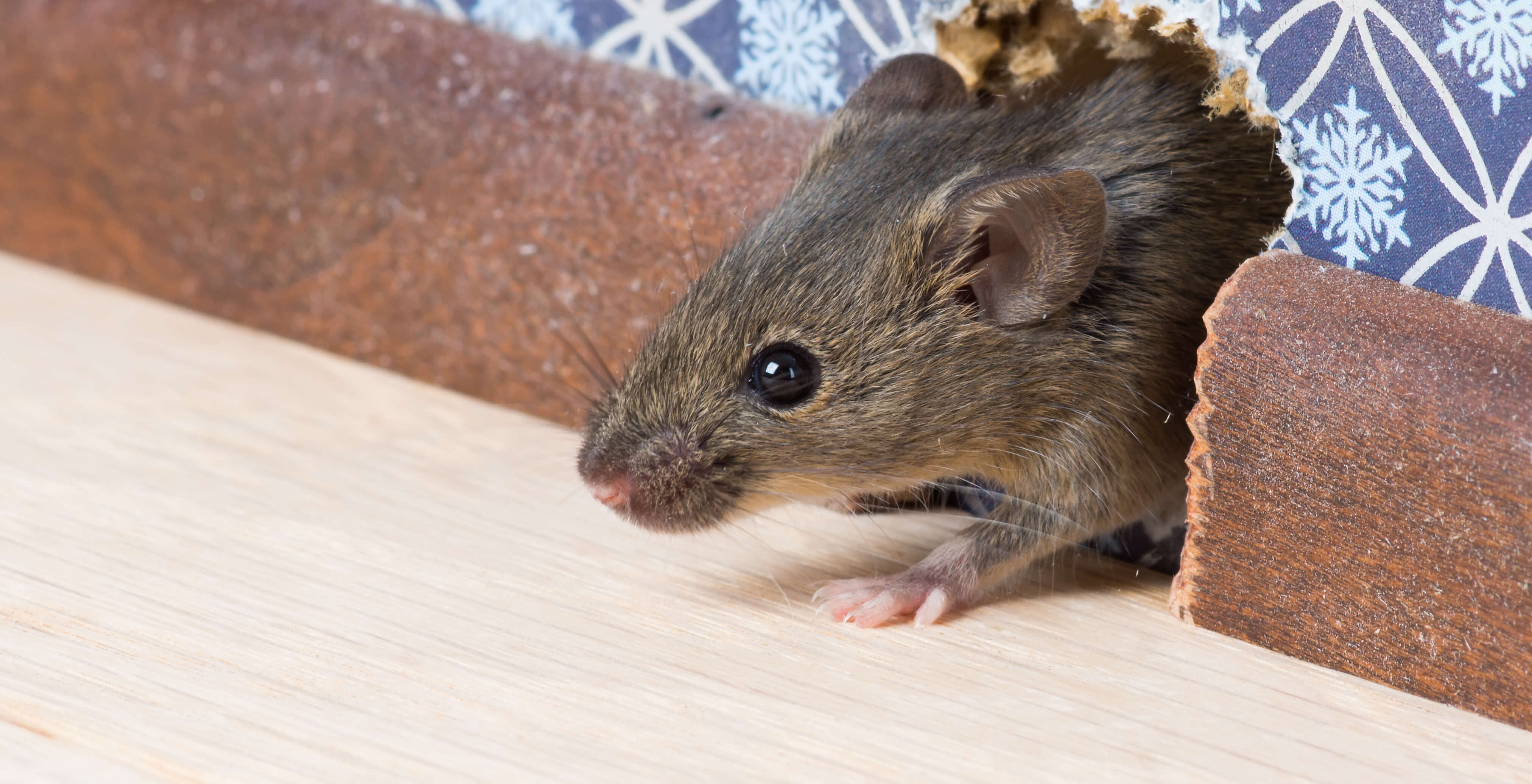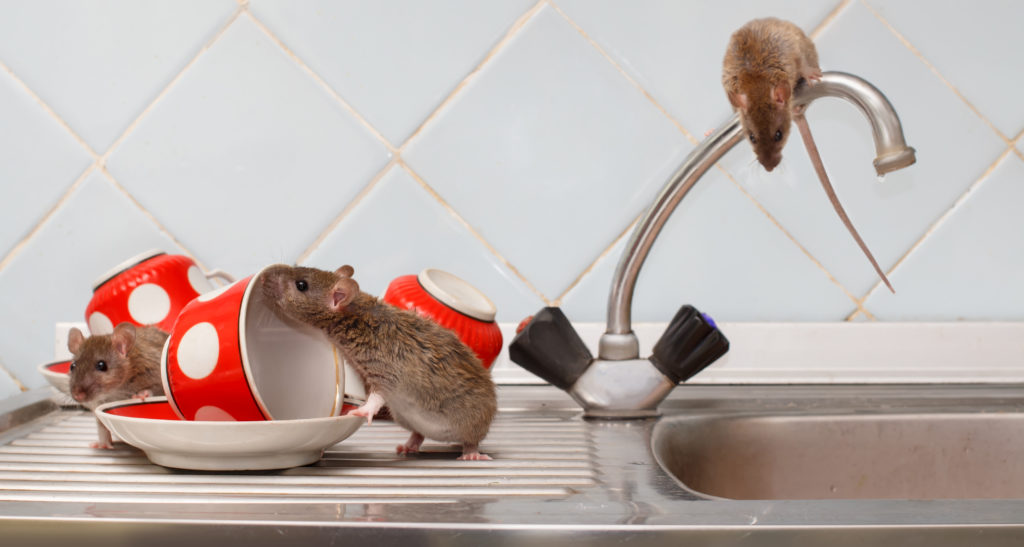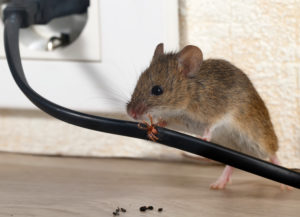Top 3 Reasons to Treat for Mice & Rats This Winter

If you were to compile a list of the most dangerous pests you could encounter as a homeowner, what would be on your list? Spiders? Snakes? Wasps? What would be at the top of your list? It may be surprising to some, however, we feel that a list such as this would not be complete if did not include rodents.
On the surface rodents, such as mice or rats, may not seem like much of a threat to your family’s health and well-being, but as history has taught us, it is not the animals themselves, but the diseases they carry which can prove to be the most disastrous. Life-threatening bacteria and viruses carried by rodents can wreak havoc on the health of you and your family.
The Perils of Trade
Yersinia pestis, this is the name of the bacterium that at one time decimated nearly 25% of the world population, dealing a particularly devastating blow to Europe and parts of Asia in the mid to late 1300’s. While the exact origins of the Black Plague are unknown, there is speculation that the Oriental Rat Flea which carried this bacteria may have originated from Mongolia and was carried west via the Silk Road, or were being hosted by rats on the cargo holds of certain merchant ships.
People who fell victim to the epidemic would experience nausea, fever, delirium, muscle aches, gangrene, and certain death. The social and economic upheaval The Black Plague brought about was so great that Europe and most of the world was changed forever. It would take another 500 years for a Swiss Physician to identify the root cause of the outbreaks. Luckily, thanks to modern advances in medicine, while epidemics such as these are still possible, they are very rare. However, this catastrophic event shows how even the most seemingly insignificant things, such as rodents, can have a lasting impact on our lives.
Have rodents made it on your list yet? Let’s look at the three main reasons to treat for rodents this winter.

1. They Carry Diseases
Aside from Yersinia pestis, rodents can carry and transmit a number of other diseases. According to the CDC, rodents transmit diseases two ways. The first is directly through their bite, exposure to their urine or droppings, or through direct contact.
Through their bite, diseases like Rat Bite Fever can cause nausea, muscle, and joint pain, head fever, and rashes. While not fatal, symptoms of RBF can last for up to three weeks if left untreated.
Another common disease is Salmonella, which can be contracted from rodents and other small animals by breathing in or ingesting the virus present on rodent feces. A person with Salmonella will likely experience bad diarrhea, fever, and abdominal cramps. These painful symptoms can last 4-7 days and in a small population of people, can develop into chronic arthritis later in life.
Leptospirosis, another disease, is generally transferred through drinking or bathing in contaminated water. Those infected could experience headaches, chills, and fever. In serious cases, some people may experience liver issues, meningitis, and even death.
Rodents can also transmit diseases indirectly through bites from parasitic ticks and mites. Perhaps one of the most common ailments is the Colorado Tick Fever, which causes sore throats, nausea, body aches, a high fever, and body rashes. Rocky Mountain Spotted Fever, Lyme disease, and Hantavirus are just a few more of a large list of diseases transmitted by rodents.
Because of the risk of health issues, treatment of unwanted rodents, as well as proper handling of pet rodents is important to the health of you and your family.
2. They Gnaw and Cause Damage
Rodents have large teeth (incisors) which they use in the wild to create nests, climb, feed, and carve out areas of safety in trees, roots, and logs. Not surprisingly, their teeth grow fast, so they are constantly chewing and gnawing on anything and everything they can get their teeth on.
 Once they find a passageway into your home, this could include furniture, wood panels, and even wires. Utility wires, computer wires, vehicle wires, and other electronic equipment can all be badly damaged by gnawing from a rodent. These damages can be costly and repairs can be a big hassle.
Once they find a passageway into your home, this could include furniture, wood panels, and even wires. Utility wires, computer wires, vehicle wires, and other electronic equipment can all be badly damaged by gnawing from a rodent. These damages can be costly and repairs can be a big hassle.
Rodents can be elusive animals and are very difficult to catch during the day. They are almost always more active at night, and while you’re sleeping, rodents could be gnawing through your power or utility lines. Early detection and treatment of rats can help you avoid these types of issues
3. They Seek Shelter From the Cold
While population sizes of rodents may diminish during the colder months, that doesn’t necessarily mean your rodent issues are behind you. Like any other mammal, rodents seek protection and shelter from the elements. What better place to settle down than in the warmth of a house or building.
Rodents are incredibly adaptive and can find endless ways to enter an enclosed area. They are excellent climbers, can swim, and have the ability to fit through very tiny spaces. Even the most vigilant homeowner may find that they have missed a possible entryway where a rodent could enter. Some common points of entry are air vents, gas lines, sewage lines, and holes in the insulation of windows or doors. If proper care isn’t taken in the warmer months to prevent rodents, you could be dealing with an infestation by winter.
If you believe you may have rodents in your home, there are clues to look for that may help you identify a rodent infestation and the scope of the issue. Some of these include finding droppings, smudge marks, and scratches on floorboards and base panels, crumbs or scraps of food, and also the sound of them scuttling at night.
While complete eradication of rodents may not be possible, Moxie Pest Control can help you identify the nature of your rodent infestation and help keep you and your family safe this winter. Contact us if you have any questions or would like to schedule a consultation.

